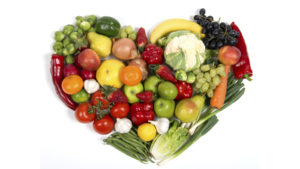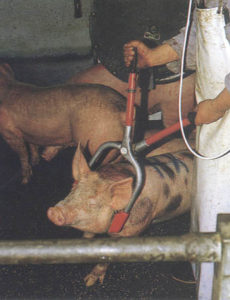Beyond Vegetarianism
SPIRITUALITY, 8 Jul 2024
Stephen Knapp (Sri Nandanandana dasa) – TRANSCEND Media Service
On the spiritual path, those who are the most inclined to lead a peaceful existence that respects the value of all life, often adopt the vegetarian lifestyle. For some people this is a very big step. This is in accordance with the yogic principle of ahimsa, which is to observe nonviolence and abstain from injuring any being in any way. However, many people ask what about the plants that are killed in the process of cooking vegetarian foods. Don’t they suffer? And don’t we get reactions for that?
The basic law of nature is that every living being lives off the weaker living entities. But there is a way of living so that we all can benefit, that we all make spiritual development. And this spiritual lifestyle is a way in which that can happen. The way this works is in the process of bhakti-yoga, wherein devotion goes beyond simple vegetarianism, and food becomes a method of spiritual progress for both those who prepare and eat the food, and those living beings that are used in the preparations.
For example, in the Krishna temples, food is offered to the Deities in a special sacrament, after which it becomes prasadam. This means the mercy of the Lord. Thus, the food we eat after it is offered to the Lord becomes a means for our purification and spiritual development.
In the Bhagavad-gita Lord Krishna says, “All that you do, all that you eat, all that you offer and give away, as well as all austerities that you may perform, should be done as an offering to Me.” So, offering what we eat to the Lord is an integral part of bhakti-yoga and makes the food blessed with spiritual potencies.
The Lord also describes what He accepts: “If one offers Me with love and devotion a leaf, a flower, fruit or water, I will accept it.” Thus, we can see that the Lord does not need anything, but if one offers fruits, grains, and vegetarian foods, He will accept it. The Lord does not accept foods like meat, fish, or eggs, but only those that are pure and naturally available without harming others. So, we offer what Lord Krishna likes, not those items which are distasteful to Him. We also do not use garlic, onions, or mushrooms when we prepare food for Krishna, for these are considered to invoke passion or are from impure sources, which similarly affect our consciousness. Foods for Krishna should be in the mode of goodness, sattvic foods which when we accept as prasadam also elevate our own consciousness.
So, on the spiritual path, eating food that is first offered to God is the ultimate perfection of a vegetarian diet. The Vedic literature explains that the purpose of human life is reawakening the soul’s original relationship with God, and accepting prasadam is one of the ways to help us reach that goal.
The food is meant to be cooked with the consciousness of love, knowing that it will be offered to Lord Krishna first, and only after that distributed to ourselves or guests to take. The ingredients are selected with great care and must be fresh, clean and pure vegetarian. Also, in cooking for Krishna we do not taste the preparations while cooking. We leave the first taste for Krishna when it is offered to Him.
After all the preparations are ready, we take a portion of each one and place it in bowls on a special plate that is used for this purpose only and take it to the altar to offer it to the Deities or pictures of Krishna.
Then the preparations are presented with special prayers as we ask that God accept our humble offering. The most important part of the offering is the love with which it is given, and then the Lord accepts it. God does not need to eat, but it is our love for God which attracts Him to us and to accept our offering. Even if the most sumptuous banquet is offered to God but without devotion and love, Krishna will not be hungry to accept it. It is our love, our devotion and bhakti, which catches the attention of Lord Krishna who is then inclined to accept our service.
After He glances over and tastes the loving offering of vegetarian preparations, He leaves the remnants of the food offerings for us to honor and relish. Krishna’s potency is absorbed in that food. In this way, material substance becomes spiritualized, which then affects our body and mind in a similar and most positive and elevating way. This is His special mercy for us. Thus, the devotional process becomes an exchange of love between us and God, which includes food. And that food not only nourishes our body, but also spiritualizes our mind and consciousness.
By relishing the sacred food of Krishna prasadam, it purifies our heart and protects us from falling into illusion. In this way, the devotee imbibes the spiritual potency of Lord Krishna and becomes cleansed of sinful reactions by eating food that is first offered in sacrifice to God. We thus also become free from reincarnation, the continued cycle of birth and death. This process prepares us for entering the spiritual world since the devotees there also relish eating in the company of Lord Krishna.
However, what does this do for the plants that are offered? They are also living beings. In this process, not only do we make advancement, but all of the plants that are used in the preparations as an offering to God are also purified and reap spiritual benefit. They are used and offered to God and thus make progress in the same way we do. That is why this is beyond mere vegetarianism in which we may live more simply and nonviolently, but in this process, everything we use in the service of the Lord becomes spiritualized.
If we merely cook for ourselves, we become implicated in karma or the reactions if we cause the harm of any living being, even plants. The vegetarian lifestyle surely causes less karma than the unnecessary slaughtering of innocent animals. However, the system of first offering food to the Lord and then taking prasadam becomes the perfect yoga diet and frees us from such karma.
Therefore, the cooking, the offering, and then the respectful eating or honoring of this spiritualized food all become a part of the joyful process of devotional service to the Lord. Anyone can learn to do this and enjoy the happiness of experiencing the potency of Krishna prasadam.
__________________________________________________
 Stephen Knapp (Sri Nandanandana dasa) has dedicated himself to spreading the deepest and most practical levels of spiritual knowledge about the soul–our real identity. Though this world may give us numerous challenges, when we rise above the basic materialistic view and its limited search for solutions, our evolutionary development on all levels greatly accelerates. By recognizing that we are all spiritual beings who are, basically, attempting to achieve the same essentials for our existence–namely love, acceptance, harmony, peace, and happiness, not to mention the ordinary needs of food, water, clothing and shelter–we can reach a new level of cooperation with each other. Stephen has written many books on this and related subjects and studied with A. C. Bhaktivedanta Swami Prabhupada becoming initiated into the spiritual line of Brahma-Madhava-Gaudiya sampradaya. He is also president of the Vedic Friends Association. srinandan@aol.com
Stephen Knapp (Sri Nandanandana dasa) has dedicated himself to spreading the deepest and most practical levels of spiritual knowledge about the soul–our real identity. Though this world may give us numerous challenges, when we rise above the basic materialistic view and its limited search for solutions, our evolutionary development on all levels greatly accelerates. By recognizing that we are all spiritual beings who are, basically, attempting to achieve the same essentials for our existence–namely love, acceptance, harmony, peace, and happiness, not to mention the ordinary needs of food, water, clothing and shelter–we can reach a new level of cooperation with each other. Stephen has written many books on this and related subjects and studied with A. C. Bhaktivedanta Swami Prabhupada becoming initiated into the spiritual line of Brahma-Madhava-Gaudiya sampradaya. He is also president of the Vedic Friends Association. srinandan@aol.com
Go to Original – stephen-knapp.com
Tags: Animal rights, Civilization, Consciousness, Krishna Consciousness, Spiritual Science, Spirituality, Vegetarianism, Violence against Animals
DISCLAIMER: The statements, views and opinions expressed in pieces republished here are solely those of the authors and do not necessarily represent those of TMS. In accordance with title 17 U.S.C. section 107, this material is distributed without profit to those who have expressed a prior interest in receiving the included information for research and educational purposes. TMS has no affiliation whatsoever with the originator of this article nor is TMS endorsed or sponsored by the originator. “GO TO ORIGINAL” links are provided as a convenience to our readers and allow for verification of authenticity. However, as originating pages are often updated by their originating host sites, the versions posted may not match the versions our readers view when clicking the “GO TO ORIGINAL” links. This site contains copyrighted material the use of which has not always been specifically authorized by the copyright owner. We are making such material available in our efforts to advance understanding of environmental, political, human rights, economic, democracy, scientific, and social justice issues, etc. We believe this constitutes a ‘fair use’ of any such copyrighted material as provided for in section 107 of the US Copyright Law. In accordance with Title 17 U.S.C. Section 107, the material on this site is distributed without profit to those who have expressed a prior interest in receiving the included information for research and educational purposes. For more information go to: http://www.law.cornell.edu/uscode/17/107.shtml. If you wish to use copyrighted material from this site for purposes of your own that go beyond ‘fair use’, you must obtain permission from the copyright owner.
Join the discussion!
We welcome debate and dissent, but personal — ad hominem — attacks (on authors, other users or any individual), abuse and defamatory language will not be tolerated. Nor will we tolerate attempts to deliberately disrupt discussions. We aim to maintain an inviting space to focus on intelligent interactions and debates.


